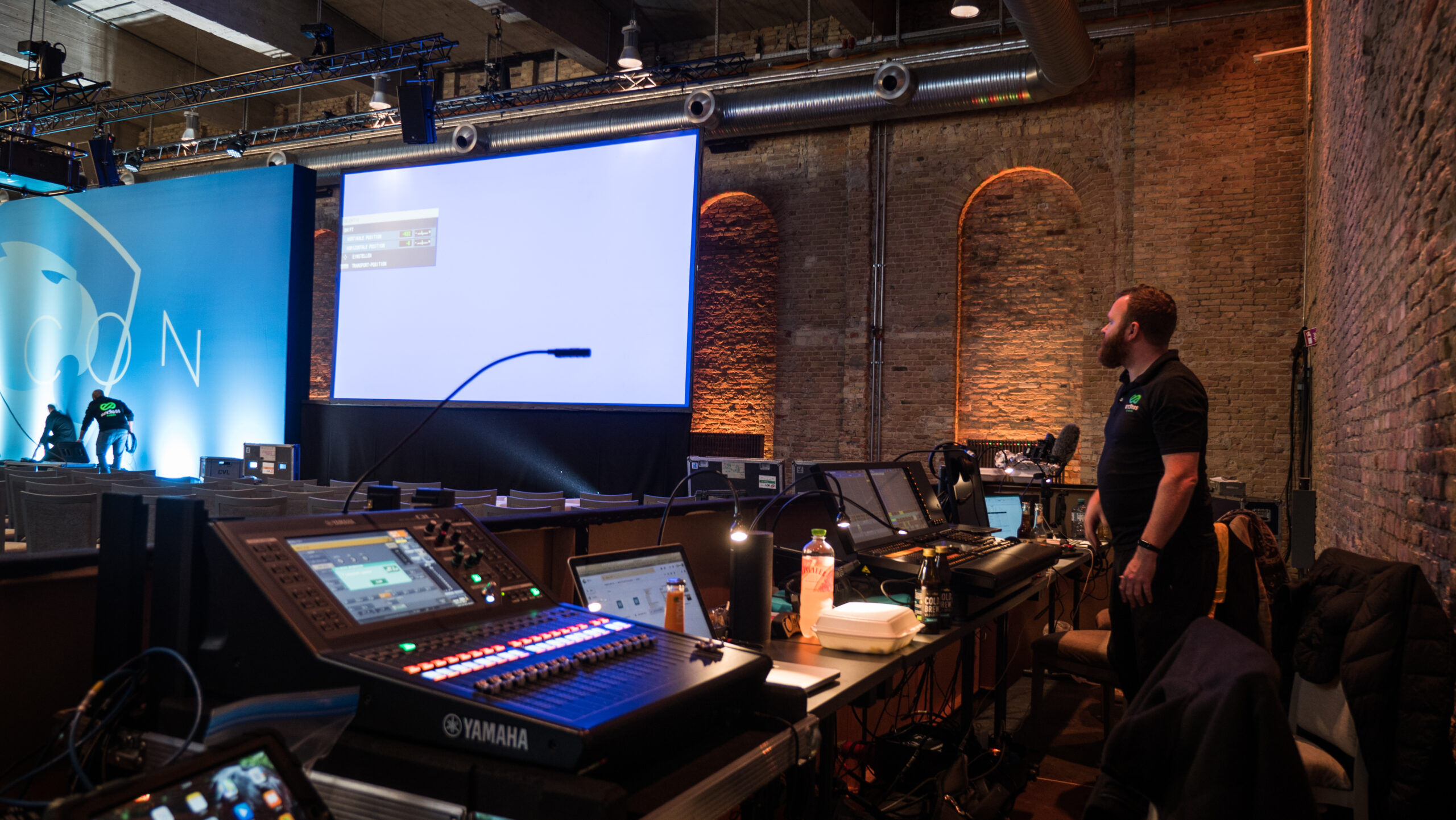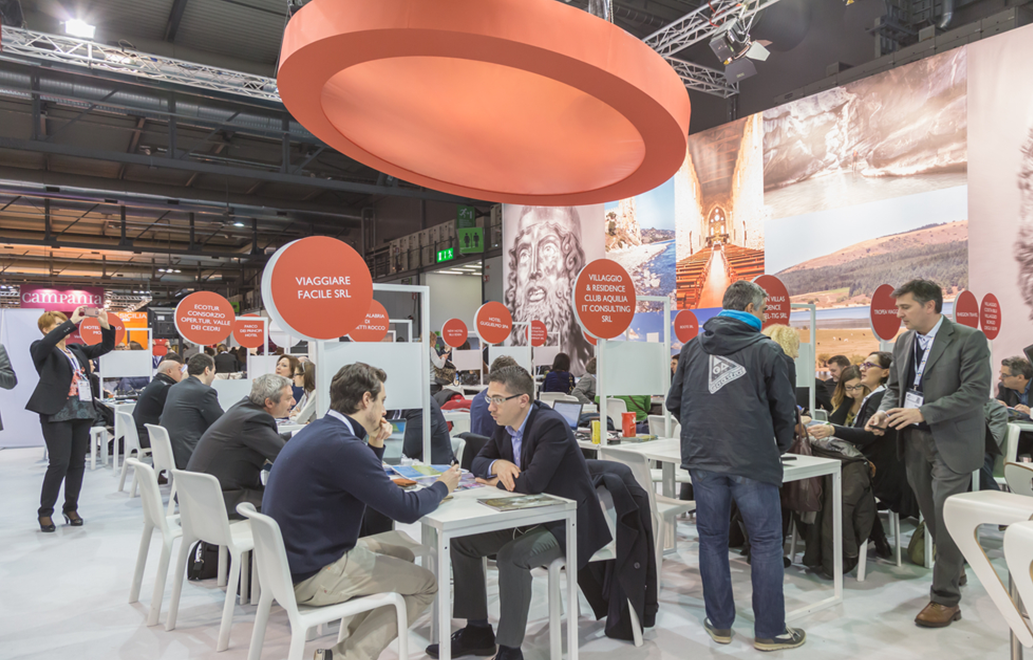Exactly How Event Production Works: A Comprehensive Check Out the Refine
Event production is a facility and organized process that requires cautious preparation and implementation. It starts with establishing clear objectives and understanding the target market. Each step, from budgeting to location choice, plays a critical duty in guaranteeing success. As the procedure unfolds, various elements have to line up seamlessly. The nuances of this elaborate procedure usually go undetected. What are the key stages that add to an unforgettable event?

The Initial Drawing Board
When starting on event production, cautious planning is vital to ensure a successful result. The first planning phase functions as the foundation for all subsequent initiatives. During this phase, event manufacturers need to define the event's function and purposes plainly. Identifying the target audience assists customize the experience and messaging, guaranteeing importance and engagement.Producers must also think about the event format, whether it be in-person, digital, or crossbreed, as this will affect different logistical components. Choosing an ideal date and location is essential, as it impacts availability and availability.Furthermore, constructing a trusted team is essential for separating responsibilities and improving interaction. Establishing a timeline with turning points guarantees all jobs are completed on timetable. This phase includes extensive research study, consisting of recognizing possible challenges and designing methods to minimize risks. Ultimately, a well-structured first planning stage sets the tone for a successful event production journey.

Budgeting and Resource Appropriation
In event production, reliable budgeting and resource allowance are crucial for success - event production charlotte. Developing economic specifications sets the foundation for all succeeding choices, while resource distribution strategies ensure that every component of the event is adequately sustained. With each other, these elements assist maintain control over expenses and optimize using offered resources
Establishing Financial Parameters
Developing financial parameters is crucial to the success of any event production, as it establishes the structure for effective budgeting and resource allocation. This procedure starts with specifying the overall spending plan, which incorporates all elements of the event, including location expenses, food catering, and advertising and marketing. By identifying readily available funds, event planners can prioritize expenditures and assign sources as necessary. Furthermore, it is vital to perform extensive marketing research to anticipate potential prices and identify financing sources, such as sponsorships or ticket sales. Establishing clear monetary parameters additionally aids in danger monitoring, permitting coordinators to allot backup funds for unforeseen expenditures. Inevitably, a well-defined budget works as a roadmap, guiding the event production team towards accomplishing their objectives while preserving economic control.
Resource Circulation Strategies
Reliable source distribution strategies are crucial for taking full advantage of the effect of an event while adhering to budget plan constraints. Successful event production calls for a careful method to budgeting and resource allotment. Planners should prioritize necessary aspects such as venue, event catering, and modern technology, making certain that funds are designated to areas that enhance guest experience. A detailed budget plan must lay out expected expenditures and identify areas for possible cost savings, such as discussing with suppliers or exploring sponsorship possibilities. In addition, tracking expenses throughout the preparation process aids stop overspending. By employing tactical source circulation, event producers can provide an unforgettable experience while preserving fiscal responsibility, eventually adding to the general success of the event.
Venue Selection and Logistics
Picking the ideal place is important to the success of any kind of event, as it sets the stage for the total experience. Venue option includes evaluating different elements, including capability, accessibility, and location. Coordinators need to think about the target audience and the nature of the event, guaranteeing the place lines up with the event's goals.Logistics play a substantial function in this procedure, involving arrangements for seating, audiovisual tools, and providing solutions. A well-chosen place must facilitate smooth circulation for participants and personnel, improving engagement.Additionally, evaluating possible locations for services like car park, washrooms, and fire escape is essential for safety and ease. The timeline for protecting the location is also important, as prominent places might reserve promptly - event production charlotte. Subsequently, comprehensive preparation and timely implementation can inevitably add to a smooth event experience, making venue option and logistics essential elements of successful event production
Innovative Principle Growth
While the place sets the physical phase, innovative principle advancement forms the event's identification and story. This procedure begins with identifying the event's function and target market, permitting event manufacturers to create a compelling motif that reverberates with attendees. Brainstorming sessions commonly include diverse perspectives, cultivating innovative concepts that line up with the event's goals.Once a theme is established, aesthetic elements visit their website such as shade palettes, signage, and decor are created to enhance the total atmosphere. Narration methods may likewise be integrated to create an interesting journey for individuals, ensuring an unforgettable experience. In addition, considerations regarding entertainment, activities, and interactive parts are lined up with the picked concept, enhancing the style throughout the event.Ultimately, efficient creative concept growth warranties that every facet of the event works cohesively, leaving a lasting impact on attendees and meeting the event's objectives. This foundational work lays the groundwork for succeeding preparation and implementation phases.
Collaborating With Vendors and Distributors
Effective event production hinges on efficient partnership with vendors and vendors. Choosing trusted companions, bargaining agreements efficiently, and ensuring prompt distributions are vital action in this procedure. Each of these factors contributes greatly to the overall success and smooth execution of an occasion.
Choosing Reliable Allies
How can event organizers guarantee a seamless production experience? Selecting dependable partners is important in attaining this goal. Event coordinators have to conduct complete research study to identify vendors and distributors with a proven performance history of quality. This consists of checking recommendations, evaluating profiles, and reviewing client comments. Coordinators ought to prioritize partners who demonstrate professionalism and reliability, timely communication, and a willingness to work together. Building solid partnerships fosters depend on and makes it possible for fast problem-solving throughout the event. In addition, it is beneficial to choose neighborhood vendors that comprehend the venue and regional logistics. Eventually, a successful event pivots on the synergy in between organizers and their companions, guaranteeing that every aspect of production runs efficiently and efficiently.
Negotiating Contracts Properly
Reliable negotiation of agreements is a crucial action in the cooperation between event organizers and their suppliers and providers. This process involves clear interaction of assumptions, deliverables, and timelines. Planners need to conduct extensive research on market rates and industry requirements to develop a standard for negotiations. It is essential to produce a collaborative environment, urging open dialogue concerning terms, pricing, and prospective contingencies. Planners should additionally focus on recognizing the supplier's capacities and restrictions to align their needs efficiently. Flexibility can result in equally helpful arrangements, fostering long-lasting partnerships. Crafting well-defined contracts that include specific performance metrics can assist guarantee accountability, inevitably bring about effective event execution and complete satisfaction for all events involved.
Guaranteeing Prompt Deliveries
Timely shipments are necessary for the smooth implementation of any event, requiring persistent cooperation between planners and their vendors and distributors. Efficient communication is crucial, as it aids develop clear expectations relating to distribution schedules, amounts, and details requirements. Planners usually create detailed timelines to lay out important turning points, guaranteeing all parties stay lined up throughout the process. Normal check-ins with vendors can assist identify potential hold-ups early, permitting proactive solutions. Furthermore, developing solid connections with trustworthy suppliers fosters count on and accountability, which can lead to better solution and prioritization. By prioritizing these collective efforts, organizers can minimize disturbances, therefore boosting the general efficiency of event production and guaranteeing that all needed materials and services show up as intended.
Marketing and Promo Techniques
While arranging an event, the success of advertising and promo methods can considerably influence participation and involvement. Effective techniques often consist of a mix of electronic advertising and marketing, traditional advertising and marketing, and grassroots outreach. Utilizing social media sites systems enables real-time interaction and targeted advertising and marketing, getting to specific demographics effectively. Email advertising and marketing projects can better involve potential guests with individualized web content and reminders.Collaborations with influencers or sector leaders can additionally improve reputation and widen reach. Creating appealing web content, such as videos or blog sites, assists to generate buzz and receive rate of interest leading up to the event. Furthermore, leveraging early-bird price cuts check and unique rewards can incentivize ticket purchases.Promoting through traditional networks, such as posters or regional media, continues to be relevant, particularly in community-focused events. A thorough strategy that integrates multiple approaches warranties maximum presence and interaction, find out here inevitably contributing to the event's success and the creation of an unforgettable experience for participants.
On-Site Execution and Monitoring
On-site implementation and administration are essential components that figure out the overall success of an occasion. Efficient coordination throughout the event assures that all components straighten with the prepared agenda. Event supervisors look after logistics, including supplier control, tools configuration, and guest services. Monitoring timelines and dealing with any type of unexpected concerns are fundamental for keeping a smooth experience.The staff plays a significant duty, as qualified employees are accountable for various tasks such as enrollment, information dissemination, and technical support. Interaction amongst employee is important; it cultivates a collaborative atmosphere and allows fast resolution of challenges.Additionally, safety methods need to be followed, securing the well-being of all guests. Post-event evaluations are also part of on-site management, providing insights for future enhancements. By concentrating on these aspects, event manufacturers can create remarkable experiences that meet or surpass participant expectations while achieving the event's objectives.
Often Asked Inquiries
Just how Do I Choose the Right Event Style?
Picking the appropriate event style involves thinking about the target market, event function, and location. Looking into present trends and gathering input from stakeholders can additionally influence innovative ideas that reverberate and create a remarkable experience.

What Prevail Blunders in Event Production?
Common mistakes in event production frequently consist of insufficient planning, bad interaction among team participants, budget plan mismanagement, ignoring to take into consideration the target market's requirements, and failing to perform an extensive post-event assessment for future improvements.
Just How Can I Determine Event Success?
To gauge event success, one can evaluate guest satisfaction, engagement levels, spending plan adherence, and post-event comments. Trick performance indications, such as ticket sales and social media interactions, additionally supply beneficial insights into total performance.
What Should I Do if It Moistens the Event Day?
In case of moisten the day, the coordinator should carry out backup strategies, such as protecting camping tents or moving activities inside. Interaction with attendees about adjustments is vital to assure a smooth experience regardless of climate obstacles.
Just How Can I Make Certain Attendee Engagement Throughout the Event?
